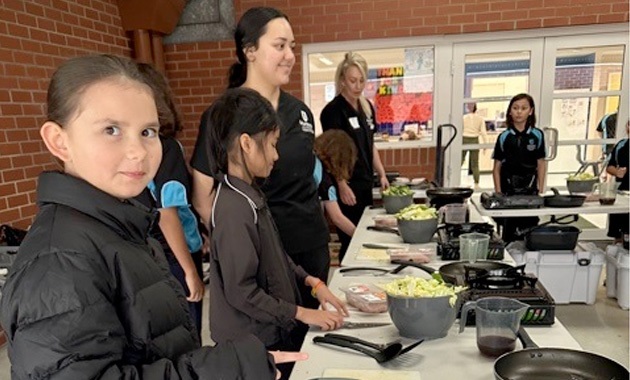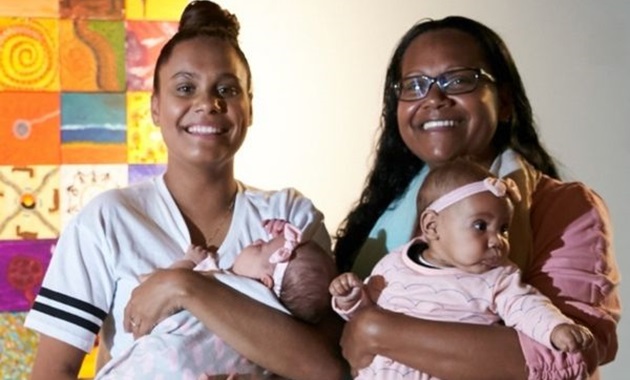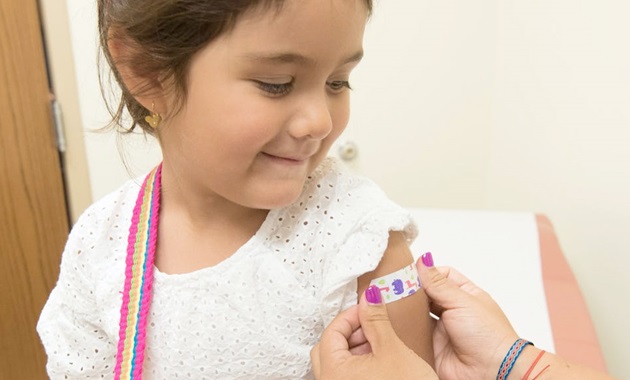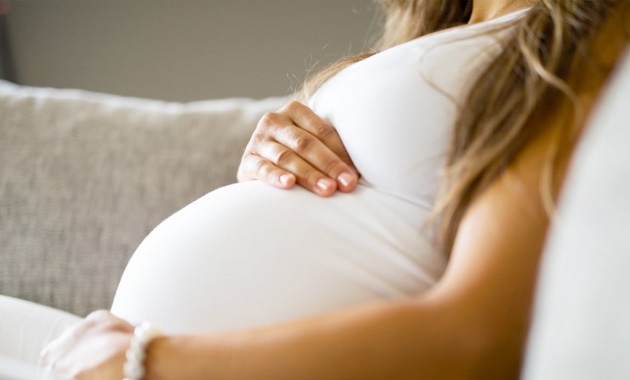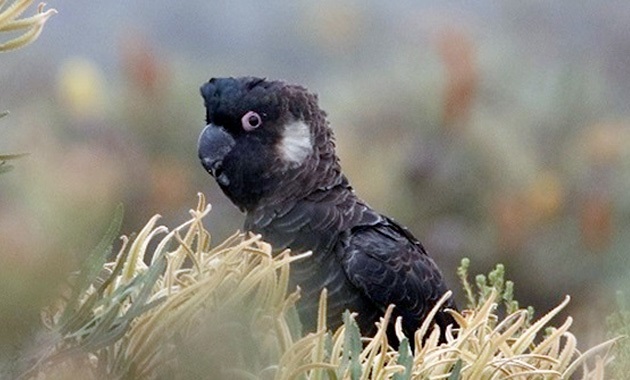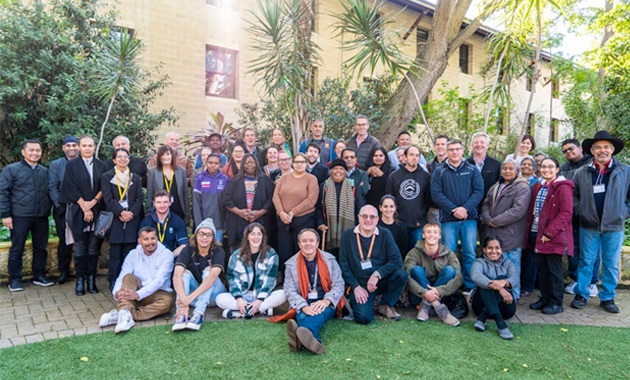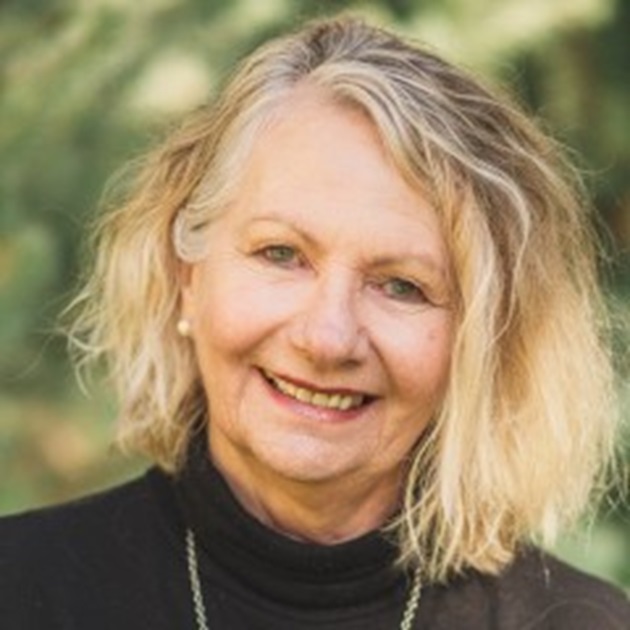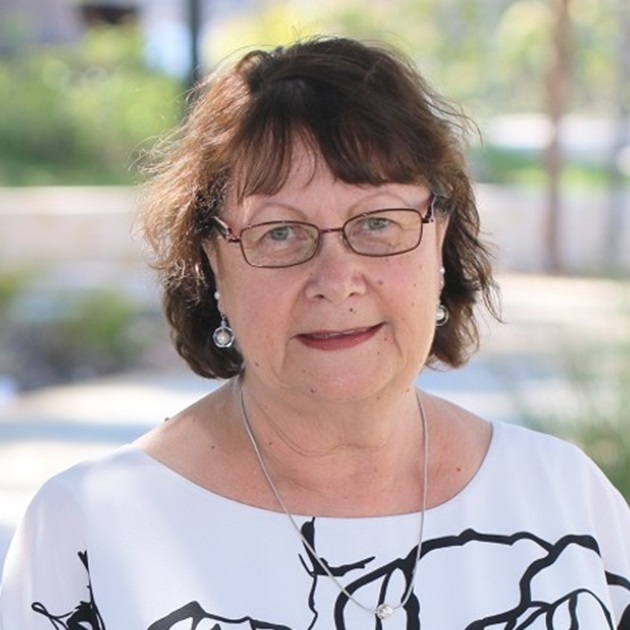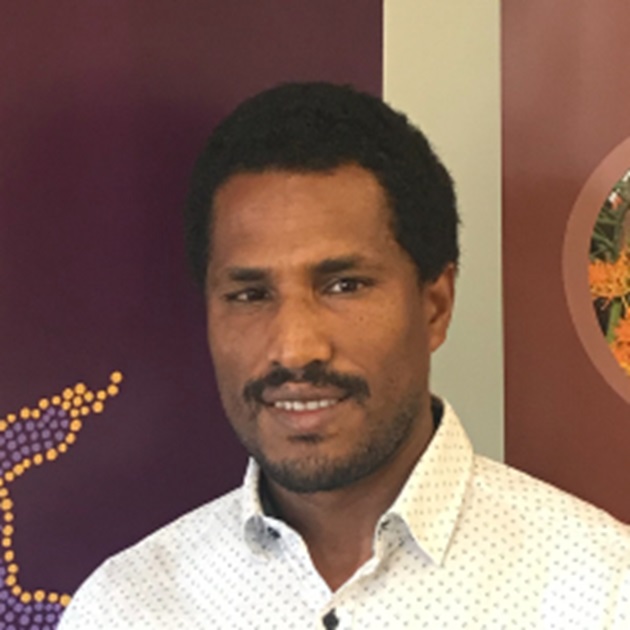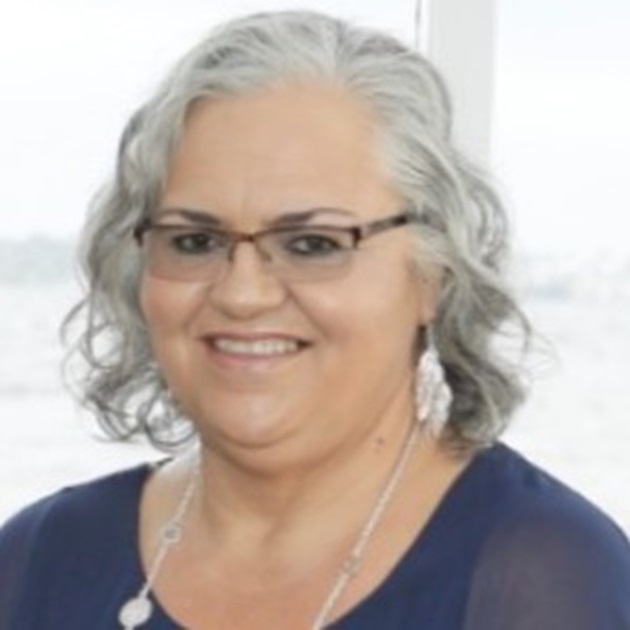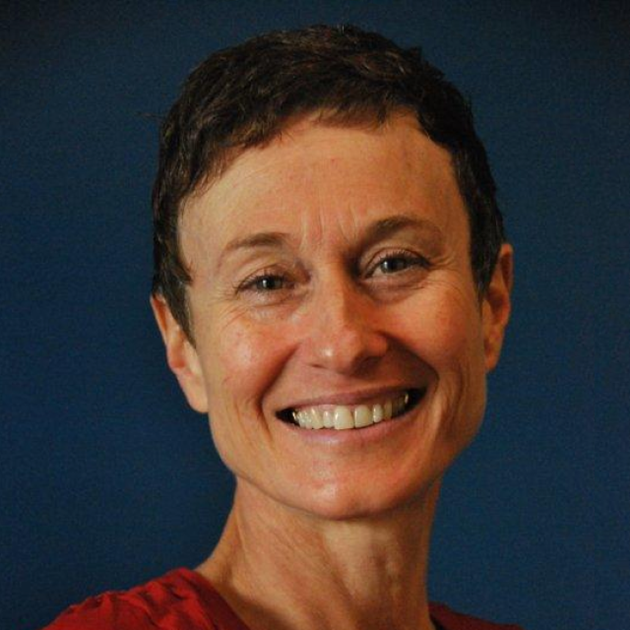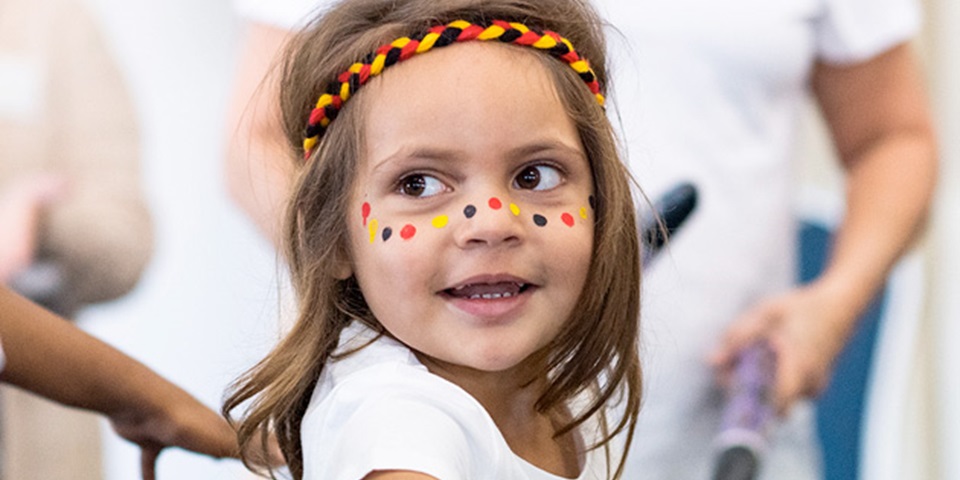About the centre
Inspired by the 'coolamon', traditionally used to cradle babies or collect and prepare food, this First Nations-led and operated Research Centre will, with allies, facilitate and harness cross-sectoral science for life together with Aboriginal traditional knowledges to engage and empower Australian First Nations to support healthy families and communities.
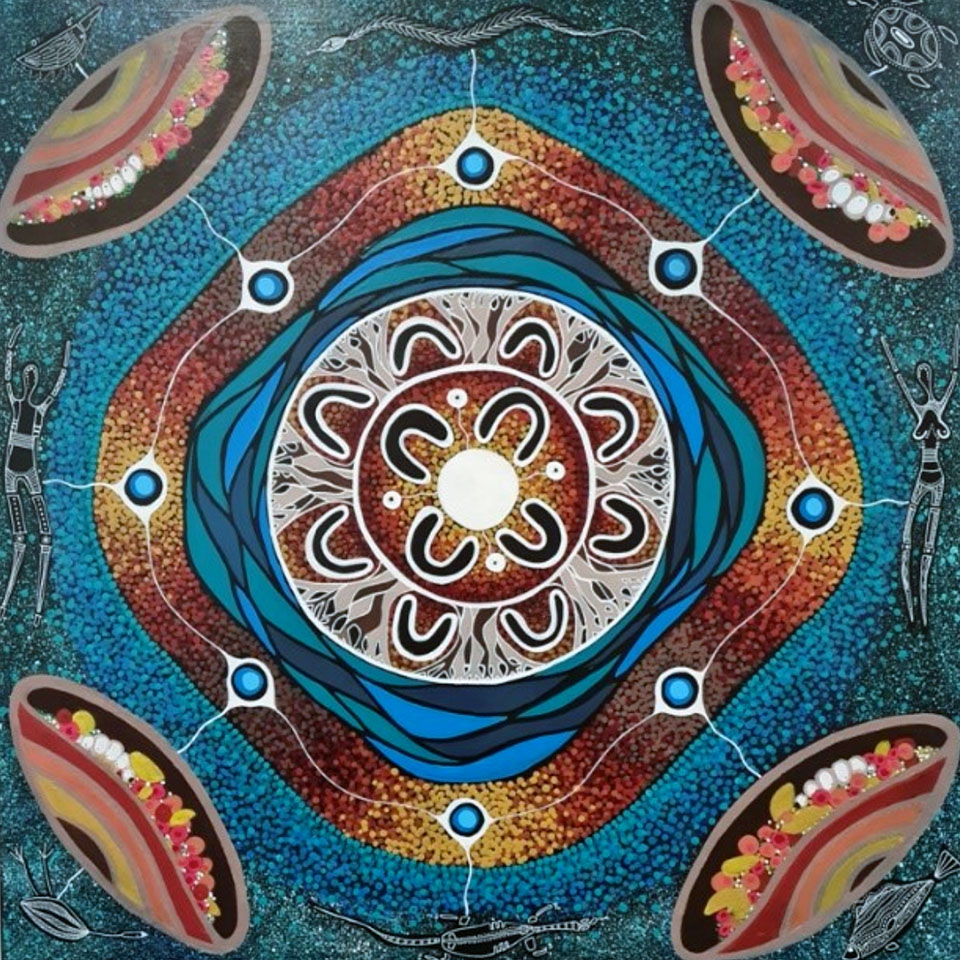
Addressing social, cultural and environmental challenges impacting Aboriginal communities
Coolamon Research and Advocacy Centre aims to build an understanding of the widespread and cumulative effects of climate change, and the social, cultural and environmental factors impacting the lives of Aboriginal families and communities. The frequency, duration and intensity of heatwaves is increasing globally and in Australia, resulting in significant social, health, and economic impacts and increasing morbidity and mortality. The Coolamon Centre will conduct research to support Aboriginal communities in the regions to mitigate the impacts of heatwaves.
Water quality is another key area of concern. Whilst the World Health Organisation recognises that access to safe and quality water is a fundamental human right and essential for people’s health and quality of life, many Indigenous homeland communities across Australia do not have access to clean, reliable water. Many homelands communities in Western Australia experience high levels of nitrates and, uranium and other minerals contaminants and bacterial pollutants in their water causing a range of diseases.
.png?sfvrsn=8a83ef4a_0)
